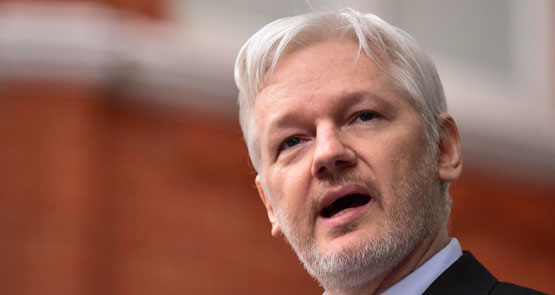
On Wednesday, your correspondent noted that the unilateral Catalan referendum was one example among several of the cracking and straining of old legitimacies. Apparently, I was wrong. It’s tharm Russian! That’s the conclusion of Chris Zappone, foreign affairs writer for Fairfax. Not just the Russkis, either. It’s their sinister agents Edward Snowden and WikiLeaks. Watch how Zappone jumps to this conclusion:
“Research independently confirmed by Fairfax Media shows Twitter accounts of WikiLeaks leader Julian Assange as well as former National Security Administrator contractor Edward Snowden now account for nearly a third of all Twitter traffic under the hashtag #Catalonia.”
A third? Of all Twitter? Well:
“Assange has peppered his followers with more than 80 original tweets supporting the Catalan independence referendum … Of the 150,279 tweets and retweets using the #Catalonia hashtag in the 10 days until Sunday, more than 40,368 came from the Julian Assange account, according to one measure by social media analysis account Conspirator Norteno. A further 8198 came from the Edward Snowden Twitter account.”
In other words, WikiLeaks ran a campaign on Catalan independence, at a crucial point — just as it has run campaigns during other elections and referendums. Lots of people retweeted the messages, because lots of people follow WikiLeaks. That’s the sinister hold WikiLeaks has on the world.
[Rundle: Trump’s crusade against NFL part of a global unraveling]
In fact, it’s worse than that, and a moment’s consideration would have made it obvious, because … tell him, someone. Yes, “Catalonia” is the English term for the nation that calls itself “Catalunya”, and under the hashtag #Catalunya and sundry variants, there is much more traffic.
Zappone has form on this sort of Cold War-era reasoning, and going out of his way to link WikiLeaks and Snowden to Putin. In a January article on a report on allegations of Russian interference in the US election, he noted:
“Without mentioning the name of former NSA-contractor turned leaker Edward Snowden, the report makes an oblique reference to the effects of the disclosures have had on the reputation and legitimacy of the US government.”
And a long feature in 2016 mapped the overlapping obsessions of Russian tweeters and bloggers and the US alt-right, but had very little by way of concrete evidence of collusion. Zappone noted:
“[US white neo-Nazi Richard] Spencer himself tried to participate in a conference in Hungary in which [Russian propagandist Alexander] Dugin was scheduled to appear.”
Went to a conference! Well, that’s a smoking howitzer. And:
“Even the left-leaning Spanish populist party Podemos is considered close to Russia. So are northern separatists in Italy, the Lega Nord. Many of the links are online.”
Considered? By whom? We need a bit more than that. Though, apparently, Fairfax doesn’t.
[Rundle: more bollocks broadcast about WikiLeaks]
The suggestion that Russia has an interest in European separatism, disruptive political tactics, and fostering movements disruptive to the pro-NATO elite is no stretch. After all, the West has been proudly, openly doing so since the end of the Cold War in Russia and surrounding nations, and calling it democracy-building. What’s shocking to many is that the favour can be returned.
If there’s concrete proof of links, they should be provided. Otherwise, Zappone can ride his hobby horse all he wants, no reason why Fairfax should let him run with it.








The current renaissance of McCarthyism both in the US and in Australia, of which the “Russians did it” meme is but one of many outstanding examples that demonstrates unequivocally how low standards of journalism have sunk. The Fairfax media carries the slogan “Independent Always”. That has to be read as “independent of the facts”. The Murdoch media are barely fit to wrap the fish and chips in.